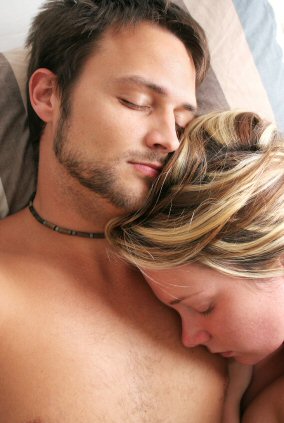 Zoran Sekerovic, a researcher from the University of Montreal, has discovered a link between falling testosterone levels in men over 50 and their quality of sleep - specifically their lack of deep sleep.
Zoran Sekerovic, a researcher from the University of Montreal, has discovered a link between falling testosterone levels in men over 50 and their quality of sleep - specifically their lack of deep sleep. The study, conducted at the Chronobiology Laboratory in the H�pital du Sacr�-Coeur de Montr�al, explains that in young men, deep sleep (phase III and IV in the slumber cycle) represents 10 to 20 percent of total sleep. By age 50, it decreases to around 5 -7 percent. For men over 60, it can disappear altogether. The study didn't find any correlation with other parts of the sleep cycle: falling asleep, phases I and II, or paradoxical sleep, when most dreaming occurs.
"Deep sleep is when the recuperation of body and mind is optimal," says Sekerovic. "With age, there is neuronal loss and the synchronization of cerebral activity isn't as good, which is why there is a loss of deep sleep. Deep sleep requires great synchronization. Low levels of testosterone intensify the lack of synchronization and can explain 20 percent of men's inability to experience deep sleep."
Sekerovic suggests dwindling testosterone levels are what is impacting deep sleep, not vice-versa, as other studies have suggested. If he is right, his findings could re-ignite the hormone therapy debate. "The loss of deep sleep is a serious problem that could be treated with testosterone. That would be tremendous progress," says Sekerovic. "But hormone therapy can have secondary effects. Therefore, it will be essential to better understand the mechanisms leading to the loss of deep sleep."
Related:
Lack Of Testosterone Makes Men Forgetful
Andropause (Male Menopause)
New Penis Enhancement Pill Claims To Boost Testosterone
The Partying Penis And The Horny Hangover
Source: University of Illinois

